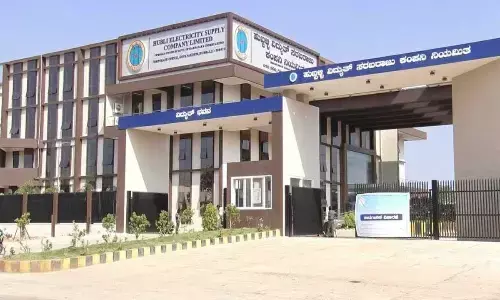Rising heart attacks in school-going kids concerning trend: Top cardiologist
Share :

Riddhi Mewada, a 12-year-old from class 8 in Gujarat’s Surat, collapsed in the class and died of a suspected heart attack on Wednesday.
New Delhi: Riddhi Mewada, a 12-year-old from class 8 in Gujarat’s Surat, collapsed in the class and died of a suspected heart attack on Wednesday.
Last week, Atif Siddiqui, 14, a student of Class 9 in Lucknow, died after he collapsed in his classroom due to suspected heart attack during a lecture.
Riddhi and Atif are not the lone victims, as, in the recent past, many young and school going children have lost their precious lives to heart attacks.
"This rise in heart attack cases among school-going kids is a concerning trend," Dr. Ashwani Mehta, Cardiologist at Sir Ganga Ram Hospital, New Delhi, told IANS, ahead of the World Health Day on September 29.
He pointed out several key factors at play.
"Dietary habits have shifted towards processed and unhealthy foods, loaded with sugars and fats. This, combined with a decrease in physical activity due to more sedentary lifestyles, contributes significantly."
A recent report by Delhi-based nutrition think tank Nutrition Advocacy in Public Interest (NAPi), showed that regularly used packaged products such as chips, cookies, sweets, soft beverages, instant noodles, sugary cereals, frozen meals, ice cream, bakery items, and chocolates have salt, sugar and fat at higher-than-recommended levels.
This has increased the "incidence of high blood pressure, diabetes and high cholesterol levels in the younger population, and these lifestyle factors lead to further complications for heart health issues in kids", Dr. Mehta said.
He suggested “a multi dynamic approach” to help youngsters stay fit and live a healthy life. This includes better nutrition, increased physical activity, and improved stress management techniques.
Early education about cholesterol and heart health will also be an important factor to curb this trend, he said.
Further, heart attacks are also on the rise among people who are seemingly fit and who maintain a healthy lifestyle. Cholesterol, stress and sleep are other major reasons, the doctor told IANS.
"On an average 6 out of 10 Indians have high LDL cholesterol (LDL-C). LDL-C is nothing but the bad cholesterol in one’s body, and the accumulation of it in the arteries can lead to cardiovascular complications like heart attacks or strokes. In most cases, high LDL-C can silently impact your health without noticeable symptoms," Dr Mehta said.
Recent ICMR studies have reported high cholesterol in India, being present in 25-30 per cent of urban population and 15-20 per cent of rural population. Understanding and actively managing LDL-C levels is necessary in preventing heart attacks and strokes. High LDL-C is a key player in the development of plaque in arteries, it can lead to atherosclerosis, that is, the narrowing of the arteries and increasing the risk of blockages. Monitoring and maintaining healthy LDL-C levels can help reduce the buildup of plaque and lower the risk of cardiovascular events.
"It's like ensuring the pipes in your house are clear; it reduces the chances of a blockage or a burst. By knowing your target LDL-C levels, taking proactive measures and, if necessary, medication, you can significantly reduce the risk of heart attacks and strokes, ensuring a healthier and safer future for you and your heart," Dr Mehta said, who has been a principal investigator for 25 major international clinical trials.
"One more potential culprit being explored is the aftereffects of Covid-19, which has shown to have lingering effects on various organs, including the heart," he said, noting that some individuals, even those who were previously in good health, may be experiencing unexpected cardiac complications as a result.
Emerging research suggests that individuals with long Covid are increasingly suffering symptoms associated with heart problems such as chest pain, shortness of breath, palpitations, and fatigue. Dr Mehta also warned against "going overboard with supplements which can potentially lead to excessive intake of certain nutrients, and adversely affect the heart and other organs".
Similarly, "strict diets, especially those extreme in nature, can deprive the body of essential nutrients, potentially impacting heart health. Excessive, or overly intense exercise routines without proper rest and recovery can also strain the cardiovascular system".
Dr Mehta also recommended managing stress through techniques like mindfulness, deep breathing, or engaging in relaxing activities.
"Adequate sleep is crucial, as it allows the heart to rest and repair. Avoiding alcohol and tobacco, and keeping tabs on blood pressure, cholesterol levels, and blood sugar are also vital steps in safeguarding heart health."









